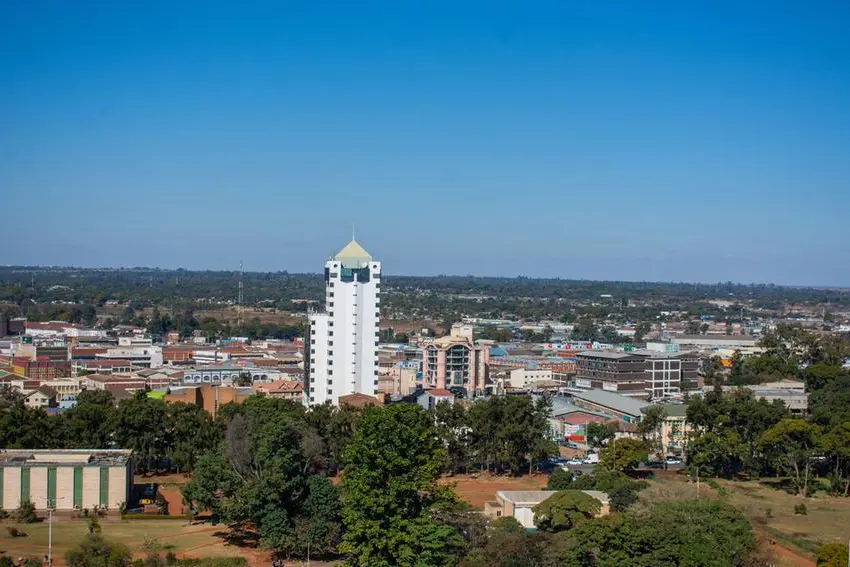PHOTO
The state-owned utility’s push to procure a massive 1800MWh Battery Energy Storage System (BESS) raises significant questions about both its technical feasibility and the integrity of the procurement process.
With ZESA already drowning in debt and incapable of funding its operations without external support, one wonders whether this project is genuinely intended to address the country’s energy woes or to enrich a few well-placed individuals.
Battery Energy Storage Systems (BESS) have revolutionized power management across the globe.
By storing surplus electricity during off-peak periods and releasing it during peak demand, BESS systems have become critical tools for utilities seeking grid stability, peak shaving, and load balancing.
Falling prices of lithium batteries have further accelerated the adoption of BESS, making it an attractive solution for countries grappling with energy deficits.
Globally, BESS has proven effective where surplus off-peak power exists to charge the batteries.
Utilities in regions with abundant and reliable generation capacity have leveraged these systems to stabilize grids and reduce reliance on fossil fuel peaking plants.
However, the success of BESS hinges on robust feasibility studies, transparent procurement processes, and a clear alignment between supply and demand dynamics.
In Zimbabwe, the power generation landscape paints a grim picture.
The country faces a daily shortfall ranging between 300MW and 600MW, with Kariba’s hydroelectric output limited by low water levels and Hwange’s coal-fired units 1 to 6 plagued by frequent breakdowns.
This is why the country is currently experiencing nearly daily power outages lasting for up to 18 hours.
Any surplus off-peak power is minimal, often not exceeding 50MW, and projections indicate it may not surpass 100MW in the foreseeable future.
The Southern Africa Power Pool (SAPP) has little tradable power during the off-peak period, certainly not near enough to match the BESS requirements of 300MW for six hours.
Yet, despite these glaring constraints, it is public knowledge that ZESA’s executive chairman, Dr. Sydney Gata, is pushing for a BESS project with a staggering capacity of 1800MWh—intended to dispatch 300MW over six hours daily.
This plan is not only technically unfeasible given the current power generation capacity but also economically reckless.
The absence of a detailed feasibility study compounds the suspicion that the project is less about addressing Zimbabwe’s energy challenges and more about lining the pockets of a few individuals.
The procurement process for this BESS project is shrouded in controversy.
It is widely believed that ZESA’s bid process, which closes on 28 January 2025, was hastily compiled during the December shutdown period, seemingly designed to favor a Chinese company, name withheld for now.
Dr. Gata and a select group of engineers reportedly traveled to China to engage with this company, with strong suspicions that the deal was prearranged to award the project to this firm.
If true, such procedural shortcuts not only violate good governance principles but also raise the specter of corruption.
ZESA Holdings is technically insolvent, barely able to sustain its operations.
The proposed $400 million price tag for the BESS project is grossly disproportionate to Zimbabwe’s economic realities.
How can a utility that struggles to maintain its existing infrastructure and meet basic electricity demands justify embarking on such an extravagant venture?
Moreover, the lack of surplus off-peak power renders a BESS of this scale impractical from the existing off-peak energy.
At best, Zimbabwe can only consider a smaller BESS around 600MWh at this stage or a larger one supported by renewable energy sources such as large-scale solar projects.
This would not only align with the country’s generation capacity but also promote sustainable energy practices.
This debacle is symptomatic of a broader problem within Zimbabwe’s energy sector: entrenched corruption and poor governance.
Over the years, ZESA has been implicated in numerous scandals, from inflated tender processes to mismanagement of public funds.
The proposed BESS project appears to be yet another scheme to siphon money from the public purse under the guise of addressing national challenges.
The absence of a feasibility study, the rushed procurement process, and the suspected favoritism toward a specific Chinese company all point to a deliberate attempt to circumvent transparency.
Zimbabweans deserve better than leaders who exploit their positions for personal gain while the country remains in darkness.
The energy crisis In Zimbabwe demands rational, well-thought-out solutions—not grandiose, ill-conceived projects designed to enrich a few individuals.
The government must urgently institute an independent investigation into the proposed BESS project, focusing on the procurement process, technical feasibility, and economic viability.
Furthermore, ZESA should prioritize sustainable, cost-effective interventions to address power shortages.
Investments in renewable energy, upgrading existing infrastructure, and addressing inefficiencies within the system would yield far greater benefits than this bloated BESS project.
Zimbabwe’s energy sector cannot afford another scandal.
It is time for accountability, transparency, and leadership that puts the interests of the nation above personal gain.
The people of Zimbabwe deserve no less.
© Copyright The Zimbabwean. All rights reserved. Provided by SyndiGate Media Inc. (Syndigate.info).




















